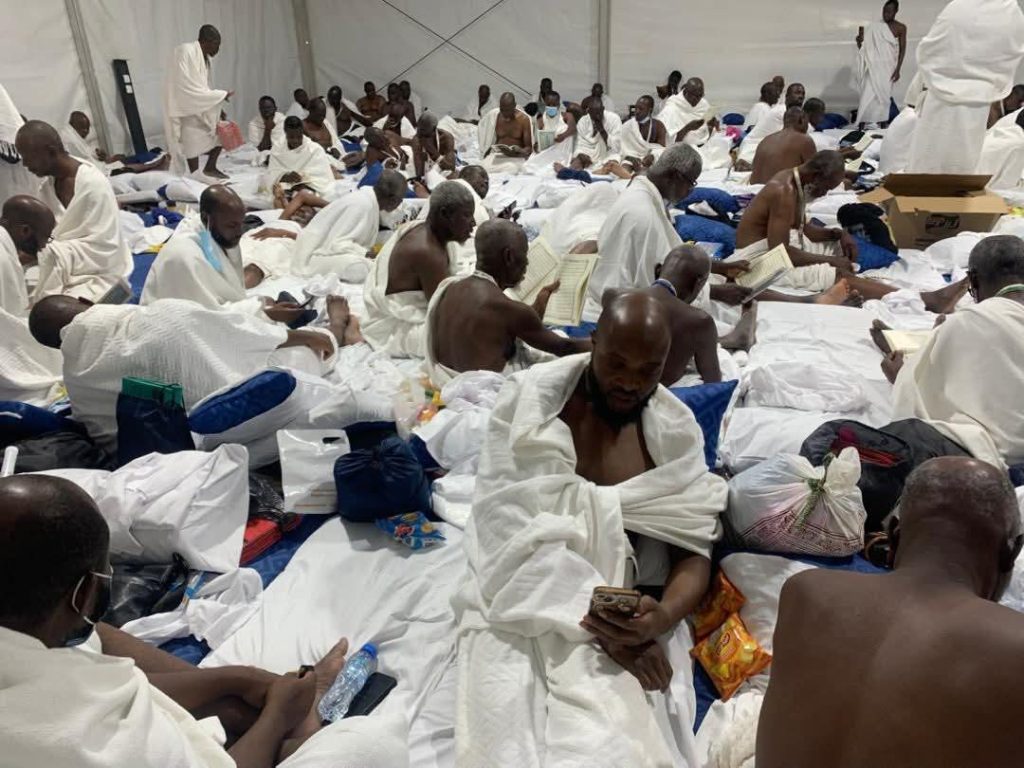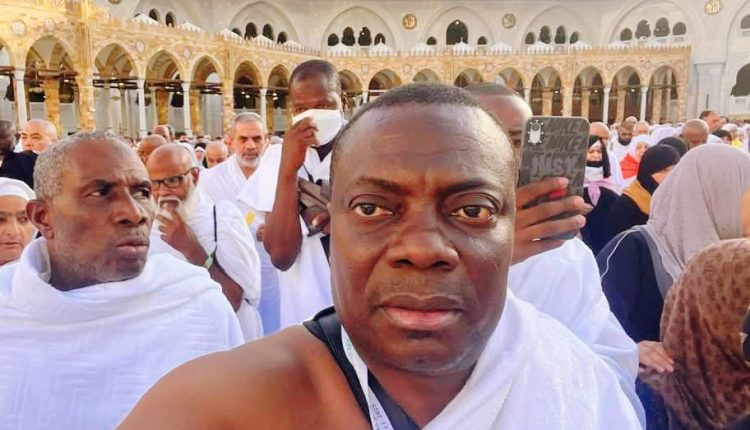Ghanaian pilgrims participating in this year’s Hajj have expressed mixed reactions over conditions at Mina and Arafat, with prominent political analyst and social commentator Musah Danquah sparking a heated debate over what he described as substandard accommodation and overcrowding.
In a widely circulated Facebook post, Danquah — who is known for his policy critiques and grassroots political commentary — drew a sharp comparison between the accommodation classes available to pilgrims and the Islamic concept of “grades of paradise” (Jannah).
“Just as we are told in the Quran, there are grades of jannah,” he wrote. “In Mina, those who paid the right price got premium and business class accommodation to sleep in while the rest of us were on low-cost budget accommodation.”

Danquah recounted how nearly 6,000 Ghanaian pilgrims were packed into facilities meant for 5,000, forcing many to sleep outside in harsh conditions. While praising the relative order at pilgrims’ hotels, he criticized the lack of effective crowd control in the Mina and Arafat camps.
“I’m hearing the president wants to reduce the Hajj fares further. We beg, I urge him to use the amount to secure a better and bigger camp for our contingent in the future,” Danquah urged. “If this is the standard, the pilgrims will still be complaining next Hajj.”
His comments have drawn varied responses from other pilgrims, including fellow commentator Cheno Malik, who acknowledged the challenges but called for a more measured assessment of the Ghana Hajj Taskforce’s efforts.
“The initial challenges faced by pilgrims at Mina aren’t enough to describe the Hajj Taskforce as ‘totally disorganized and shambolic,’ as done by Musah Danquah,” Malik stated in a Facebook post. He pointed to three main issues: reluctance of early-arriving pilgrims to share space, power supply disruptions affecting air conditioning, and sanitation problems worsened by blocked manholes.
Malik explained that the electricity problem was caused by an overloaded transformer — a situation reportedly beyond the Ghanaian authorities’ control. Nonetheless, he highlighted that pilgrims received three meals daily and had reliable transportation, adding, “We just arrived in Arafat this morning to continue with the rest of the rites.”
With thousands of Ghanaians fulfilling their pilgrimage obligations, Danquah’s remarks have reignited public conversation about the quality and sustainability of Ghana’s Hajj arrangements. Many now call on policymakers and the Hajj Board to strike a balance between affordability and dignified treatment for all pilgrims.
Source; zaaghana.com//Issifu Alidu Laa-Bandow


